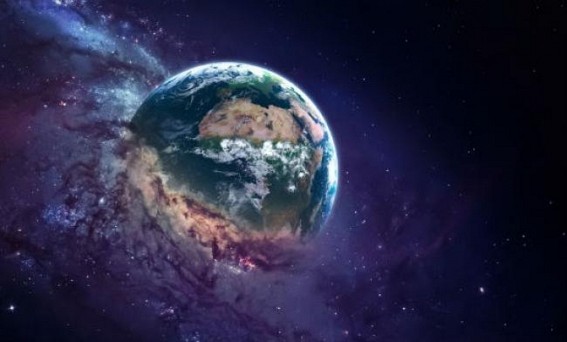TIWN

New York, March 3 (TIWN) Early Earth, home to some of our planet's first lifeforms, may have been a real-life "waterworld" without a continent in sight- a discovery that can scientists to better understand how and where single-cell organisms first emerged on Earth.
The researchers took advantage of a quirk of hydrothermal chemistry to suggest that the surface of Earth was likely covered by a global ocean 3.2 billion years ago. It may even have looked a bit like the post-apocalyptic, and land-free, future imagined in Kevin Costner's infamous film 'Waterworld'. "The history of life on Earth tracks available niches. If you've got a waterworld, a world covered by ocean, then dry niches are just not going to be available," said Boswell Wing, an associate professor in the Department of Geological Sciences at the University of Colorado Boulder. Lead author Benjamin Johnson and Wing analysed a geologic site called the Panorama district located deep in Northwestern Australia's outback.
- Russia, after Western Palestinian state recognition move, says it still backs a two-state solution
- Over 800 dead, 1000 injured inEarthquake in Afganistan
- Confident that my visits to Japan and China would further national interests and priorities: PM Modi
- Awami League warns of alarming spike in violence against women, children in Bangladesh
- 12 Killed As Under-Construction Bridge Breaks Into Two In Northwest China



